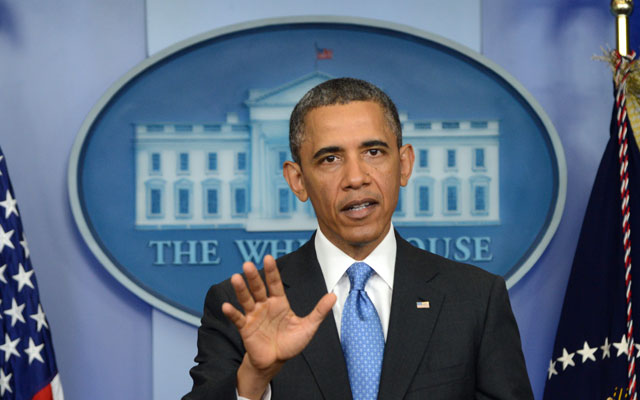Today, President Obama acknowledged the myriad terrorist threats around the world during his remarks at the National Defense University. Yet his description was much rosier than reality: “Today, the core of al-Qaeda in Afghanistan and Pakistan is on a path to defeat.”
That point is debatable by itself, but it more importantly glosses over the numerous affiliated terrorist groups that have risen to fill the void in the Middle East and Northern Africa—groups such as Lashkar-e-Taiba, the Haqqani network, and Boko Haram.
The President later said, “We must take these threats seriously, and do all that we can to confront them.” However, throughout this Administration’s tenure, it has continually done less than what is necessary—and what the U.S. is capable of—to provide security. Special operations forces were deemed unnecessary in responding to disruption in Benghazi. America’s military presence in Europe is being systematically drawn down despite those forces’ critical role in the Libyan conflict in 2011 and both Iraq and Afghanistan. Overall, our security forces are shrinking at an alarming rate.
Obama also claimed, “Our alliances are strong, and so is our standing in the world.” As The Heritage Foundation’s Dr. James J. Carafano countered, “Nothing could be farther from true. In the Middle East most of America’s friends see us declining, uncertain, and increasingly a power that can’t be depended on.”
The President also fails to realize that the enemy gets a vote. As he continues to withdraw U.S. presence from the world, adversaries grow emboldened. They see America leaving as an opportunity to act without consequence against peaceful people and even U.S. allies.
President Obama concluded with a story of one runner who pledged to enter next year’s Boston Marathon as a statement of American resolve. The President said, “Now, we need a strategy—and a politics—that reflects this resilient spirit.” But he simply has no security strategy. The U.S. cannot continue to provide for the common defense by receding from the world and only reacting when we have been attacked. A true national security strategy involves a long-term commitment to our armed forces—one that enables them to project power throughout the world, assure our allies, and deter our enemies.































